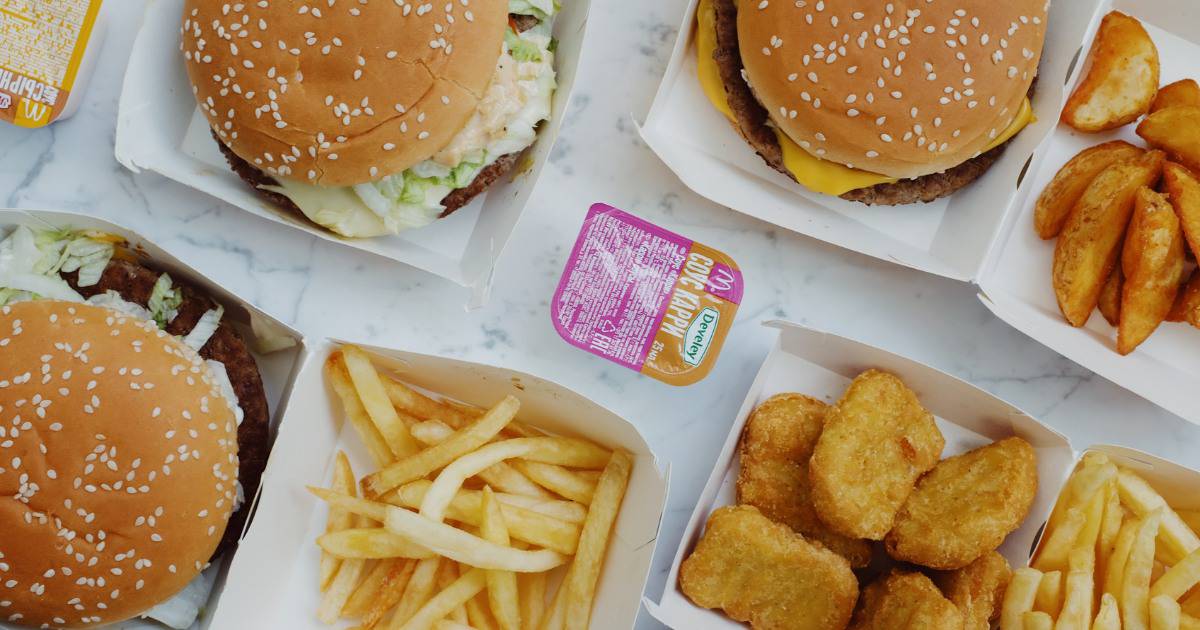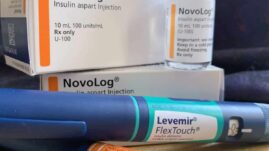While advances in science and medicine have made the management of type 2 diabetes better than ever, people still need to watch what they eat to help manage blood sugar levels.
However, many people do not know what they can and cannot eat if they live with type 2 diabetes.
This guide will explain what foods to avoid if you have type 2 diabetes.

What foods should I avoid if I have type 2 diabetes?
It’s important to note that even if you live with type 2 diabetes, no foods are completely off-limits. People with diabetes can eat everything and anything in moderation.
However, there are some foods that will increase insulin resistance and make it harder to manage your blood sugar levels than others.
Strive to avoid the following foods most of the time for better blood sugar levels, increased insulin sensitivity, and to feel healthier overall.
Sugar-sweetened beverages
Avoid sugar-sweetened beverages, such as soda, teas, and juices to help you manage your blood sugar levels and curb insulin resistance.
An average 12-ounce soda has 23.1 grams of sugar, which can wreak havoc on your blood sugar levels.
High blood sugar levels in the short term can lead to dehydration and ketones, which can be a dangerous combination.
In the long term, high blood sugar levels can lead to diabetes complications, including blindness, heart attack, stroke, lower-limb amputation, and kidney disease.
In order to hydrate, stick with water or unsweetened beverages.
Processed foods with added sugars
Sugar can be hidden anywhere and is in many processed foods as a way to make them taste better.
Processed foods with added sugars, like muffins, donuts, ice creams, candy, pies—and even condiments such as dips, sauces, syrups, and dressings—have a high glycemic index.
This means that they spike blood sugars quickly.
You may have trouble bringing your blood sugar back down, especially if you do not take insulin.
Instead, opt for whole, unprocessed foods that have a lower glycemic index and no added sugar, such as low-carb fruits and vegetables.
Full-fat dairy
While dairy is a great source of calcium and vitamin D, full-fat dairy products contain a lot of saturated fat.
This increases the risk of heart disease and obesity.
Full-fat dairy products also contain more calories and increase insulin resistance—making it more difficult to manage your weight and blood sugar levels.
Instead, opt for lower-fat dairy options like low-fat milk, cottage cheese, soft cheeses, and Greek yogurt.
Just be careful that the lower-fat versions do not have added sugar and that they are unflavored.
Foods with trans fats
Trans fats were originally created to improve the flavor and texture of many processed foods such as crackers, cakes, fried chicken, and French fries.
While trans fat doesn’t raise your blood sugar directly, it increases inflammation and insulin resistance.
Trans fats increase your blood pressure and cholesterol and are incredibly unhealthy for your heart.
Eating foods with trans fats regularly can lead to weight gain and makes managing blood sugar levels much harder.
Avoid processed foods that contain “partially hydrogenated” on their ingredient list and opt for foods that are not fried, such as grilled chicken and fish, instead.
High-fat meats
Foods such as beef brisket, steak, prime rib, pork, and beef contain a lot of fat.
Studies show that eating high-fat meats, especially red meat, is linked to an increased risk of cancer and heart disease.
Heart disease is the number one cause of death for people living with diabetes.
Instead, you should opt for lower-fat meat options like chicken or turkey breast.
Alternatively, you can try a vegetarian diet and opt for tofu or beans to protect your heart health.
High carbohydrate foods
Since carbohydrates raise blood sugar, eating many carb-heavy foods can make managing your blood sugar levels more difficult.
Foods such as white bread, sugary cereals, white pasta, and rice, and even higher carbohydrate foods like dried fruits can be tricky to eat when you live with type 2 diabetes.
While eating these foods in moderation is okay, largely opting for lower glycemic, whole, and unprocessed foods will be easier on both you and your blood sugar levels.
What foods can I eat freely with type 2 diabetes?
If you live with type 2 diabetes, you will want to eat minimally processed, whole foods that do not have added sugars.
Talk with your doctor and figure out a meal plan that will work for you, your health goals, and your lifestyle.
However, the following foods are known to increase insulin sensitivity and promote whole-body health:
- Fresh fruits: Strawberries, raspberries, blueberries, avocados, tomatoes, and olives
- Fresh vegetables: Kale, cauliflower, cabbage, green beans, Brussels sprouts, and lettuce
- Healthy oils and fats: Extra-virgin olive oil, nut butter, cashews, Brazil nuts, and almonds
- Whole grains: Whole-wheat pasta and brown rice, in moderation
- Healthy proteins: Grilled chicken, fish, tofu, beans, and lentils
- Low-fat dairy: Low-fat cottage cheese, Greek yogurt, milk, and soft cheeses
- Unsweetened beverages: Still and sparkling water, unsweetened tea, and coffee
Can I reverse type 2 diabetes?
Although there is no cure for type 2 diabetes, it can sometimes be reversed or go into remission through dietary changes and weight loss.
This means that you may be able to maintain healthy blood sugar levels without medication.
Talk with your doctor if you’re interested in learning about healthy strategies to help reverse your type 2 diabetes.
However, if you return to unhealthy habits, your need for diabetes medications will likely return.
Can people with type 2 diabetes eat sugar?
Yes! While sugar isn’t exactly a healthy food, people with type 2 diabetes can and do eat sugar.
There are special times and moments in life when anyone wants to celebrate with a little treat, and that is totally fine as long as treats are enjoyed in moderation.
Always make sure you’re balancing what you’re eating throughout the day, and make sure to stick to healthy habits, such as exercise, to help keep your blood sugars on track.
If you’re on insulin, make sure to take insulin accordingly for anything you eat, especially if it has sugar.
Talk with your doctor about creating a healthy eating plan that includes treats every now and again—especially if you tend to crave sweets.




Kathleen Rankin
Fresh fruit cannot be eaten freely!! We teach that non-starchy vegetables can be eaten freely. It is rare for anyone to have hyperglycemia from freely eating green beans, broccoli or cauliflower.
LMS
A very informative read. Thank you for this good quality knowledge, great work done.